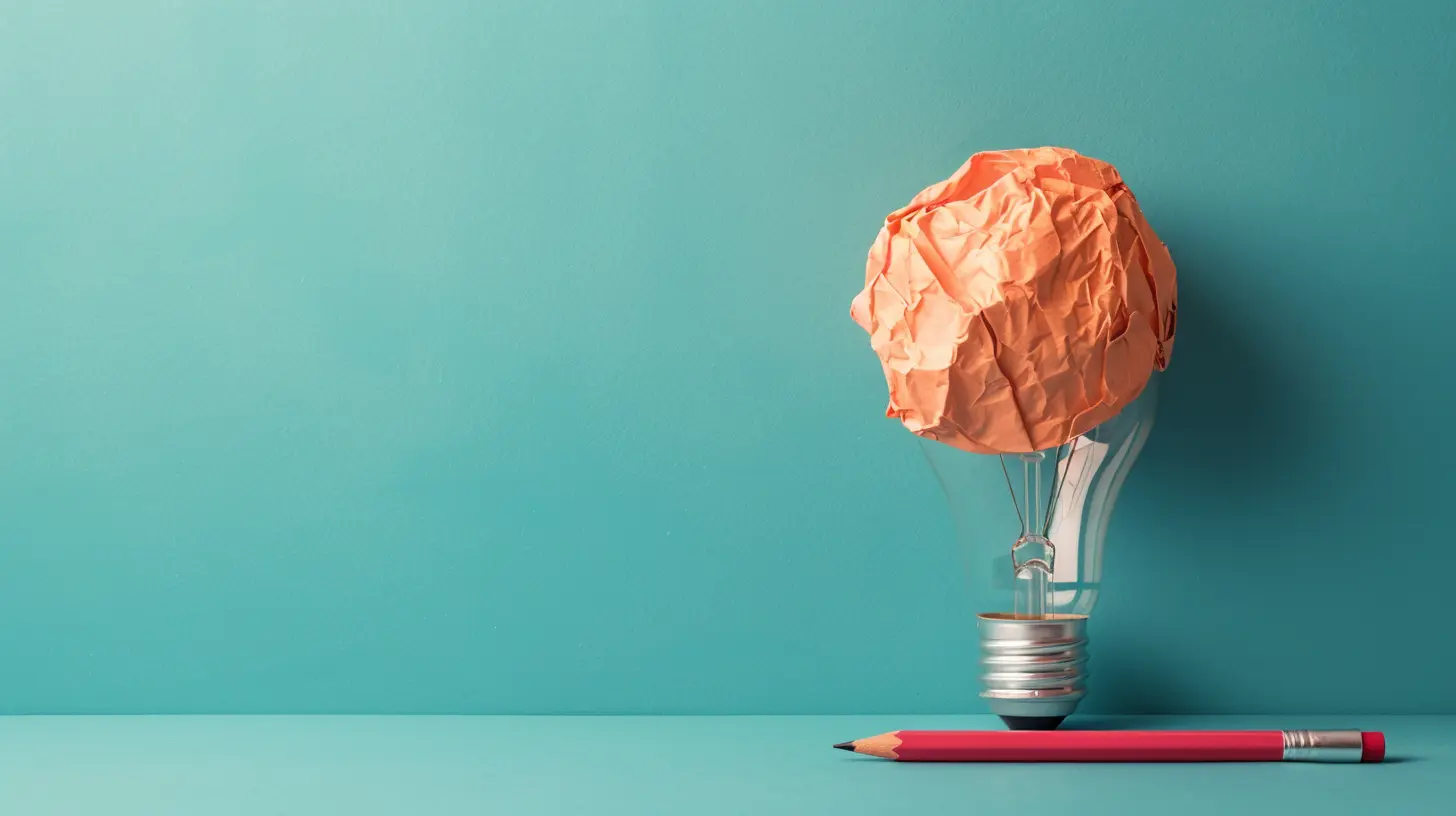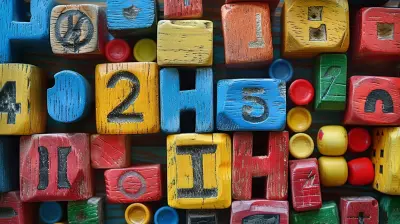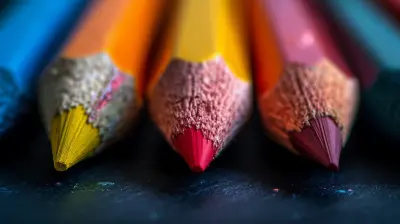Mastering Note-Taking for Better Retention
14 September 2025
Okay, let’s talk about the one thing every student swears they do right... but 99.9% of the time, absolutely butcher — note-taking. Yup, I said it. We've all been there: scribbling furiously like we’re decoding a secret message from the future, only to look back at our notes later and wonder, “Was I having a stroke?” Or worse – we skip taking notes altogether because, well, the professor talks too fast, right?
Well, buckle up, because we’re diving headfirst into the wild world of mastering note-taking for better retention. And no, it's not just about writing stuff down. It’s about writing the right stuff down — and doing it in a way that your brain says, “Oh hey, I remember this!”

Why Note-Taking Matters (Yes, Really)
So what’s the big deal with note-taking anyway? Isn't paying attention enough?Spoiler alert: Nope.
Taking notes isn't just about creating a dusty archive of doodles and half-written sentences. It's about engaging with the material. Think of your brain as a sponge (or a goldfish, depending on how long your focus lasts). Taking notes helps squeeze that sponge dry so it can soak up actual knowledge — with less of the mental leakage.
TL;DR? Good note-taking = better memory, better grades, and way less panic the night before the exam.

The Myth of "I’ll Just Remember It"
Ah yes, the classic lie we tell ourselves.“I don’t need to write this down — I’ll remember it.” Spoiler: you won’t. Unless you’ve got a photographic memory (and if you do, congratulations, you're a unicorn), chances are your brain is going to toss today’s lecture into the mental junk drawer two hours after class.
Note-taking creates a paper trail (or digital trail, if you’re fancy) that gives your brain a second chance to process info. It’s like hitting the “save” button on your thoughts. Otherwise, consider them unsaved — and, well, lost in the abyss forever.

Choosing Your Note-Taking Weapon: Old School vs. Digital
Let me guess — you’re wondering if you should type your notes or write them by hand, right?Pen and Paper: The OG Champion
There’s actual science that says handwriting notes helps you remember stuff better. Something about the physical act of writing forces your brain to process information more deeply.Plus, you can draw arrows, doodle weird faces when the lecture gets boring, and use real highlighters (yes, multiple colors — live your truth).
Digital Notes: The Bullet-Typed Revolution
Typing is faster, searchability is a godsend, and apps like Notion, OneNote, and Evernote practically do backflips for you. But here’s the kicker: the faster you type, the more likely you are to transcribe instead of understand. So, unless you’re typing meaningful summaries instead of acting like a courtroom stenographer, you’re not doing yourself any favors.
Popular Note-Taking Methods That Don’t Suck
Don't just write things down randomly like it's a grocery list from 2003. There’s an art to this. Let’s talk about a few tried-and-true styles that actually work.1. The Cornell Method (A Classic for a Reason)
The Cornell Method is basically the Hogwarts of note-taking. You divide your page into three sections: a wide right-hand column for actual notes, a skinny left-hand column for questions or cues, and a bottom section for a summary.It’s organized, it’s clean, and it forces you to interact with your notes after class, which is a win-win.
2. The Outline Method (Goodbye, Chaos)
This one’s all about hierarchy. Main idea? Left-aligned. Supporting details? Indented. More details? Further indented.Simple? Yes. Effective? Heck yeah. It's especially great for lectures that follow a logical flow. (Math professors, we’re looking at you.)
3. Mind Mapping (For the Artsy Overachiever)
If you think linearly and love structure, this may drive you nuts. But for visual learners, mind mapping is like candy. You start with a central concept in the middle and branch out with related ideas. It’s like making a tree of knowledge — one that actually blooms during exam week.4. The Charting Method (AKA Spreadsheet Heaven)
This method is perfect for comparing and contrasting ideas. It’s basically columns and rows and more columns. If you're a business student, a science major, or just someone who thrives on structure, this is your jam.5. The Sentence Method (When All Else Fails)
This is the “just keep writing” style. You jot down key ideas as full sentences. It’s not the most efficient, but it’s better than zoning out completely. Your future self will thank you — even if your hand cramps.Tricks to Make Your Notes Stick (Hint: It’s Not Just Pretty Colors)
Taking notes is one thing. Making them actually useful? Whole different ball game.Revise, Don’t Memorize
Here’s a wild idea: go over your notes. You know, like... after class. Just 10-15 minutes. Add missing info, clarify doodles, highlight key points. Boom — your brain now says, “Oh hey, I’ve seen this before!”Use Colors Like You Mean It
Color-coding isn’t just for Pinterest study boards. Use colors to organize info. Maybe blue for definitions, red for important stuff, green for dates. Whatever floats your rainbow boat.Just don’t let it become a 3-hour coloring session in the name of “studying.”
Talk to Yourself (No, Really)
Ever try teaching your notes to an imaginary class of stuffed animals? No? Well, you’re missing out. Explaining what you’ve learned — out loud — helps transfer info from short-term to long-term memory. It’s called the Feynman Technique. Google it — it’s brilliant.Quiz Yourself Like You’re the Teacher
Turn your notes into questions. Be evil about it. "What are the three causes of the French Revolution?” “Define photosynthesis using only three words.” You get the idea. If you can answer these, you’re golden.Summarize Like You’re Tweeting It
After a study session, try summarizing your notes in 1-2 sentences. Pretend you’re posting it on Twitter (yes, I still call it that — not X, sorry Elon). If you can distill complex info into a single tweet, you actually understand it.
The “Do Not” List — Yes, There’s a Wrong Way
Before we wrap this brilliance up in a neat academic bow, let’s talk about what NOT to do. Because, yes, bad notes are a thing.- Don’t transcribe: You’re not a human tape recorder. Understand, don’t copy.
- Don’t skip reviewing: Notes are like leftovers — they get better the next day.
- Don’t rely solely on highlighters: They make your notes pretty, not smart.
- Don’t multitask while note-taking: Texting during lectures? Recipe for confusion. “The mitochondria is the powerhouse... LOL what u doing later?”
- Don’t write everything: If your hand feels like it ran a marathon, something’s wrong.
Real Talk: Note-Taking is a Skill, Not a Talent
Let me be real with you.No one's born being good at note-taking. There’s no magical “note fairy” that bestows you with organizational skills overnight. It’s something you build — like Lego for your brain. You'll mess up. Your notes will be garbage sometimes. And that’s okay.
The key is to keep experimenting. Try different methods. Mix and match. See what clicks. Eventually, you’ll craft a system that works for YOU — not your classmate, not that YouTuber with the aesthetic desk setup, but you.
Bonus: The “Study Buddy” Hack
Want to 10x your note power? Trade notes with a friend after class. You’ll catch things they wrote that you missed, and vice versa. It’s like adding extra RAM to your brain. Just make sure your study buddy isn’t “that guy” who writes notes like a cryptic treasure map.Conclusion: From Clueless to Clued-In
So here we are. You started this article thinking note-taking was just about scribbling stuff down. But now? You know better. You’re armed with styles, strategies, and some good old-fashioned sass.Mastering note-taking isn’t about being perfect — it’s about being intentional. Your notes should serve you, not confuse you. So the next time you sit down, pen (or keyboard) in hand, remember: this isn’t busywork. It’s brain work.
And hey, if all else fails, just make sure you can at least read your own handwriting. That alone puts you ahead of half the population.
all images in this post were generated using AI tools
Category:
Student SuccessAuthor:

Bethany Hudson
Discussion
rate this article
1 comments
Parker McGuffin
This article offers valuable insights into effective note-taking strategies that can significantly enhance retention. By emphasizing techniques like active listening and structured formats, it provides practical advice for students. Incorporating personal methods and digital tools can further tailor the approach to individual learning styles, making it a well-rounded resource.
September 28, 2025 at 4:41 AM

Bethany Hudson
Thank you for your thoughtful comment! I'm glad you found the insights on note-taking strategies helpful. Tailoring methods to individual learning styles is key to effective retention.


